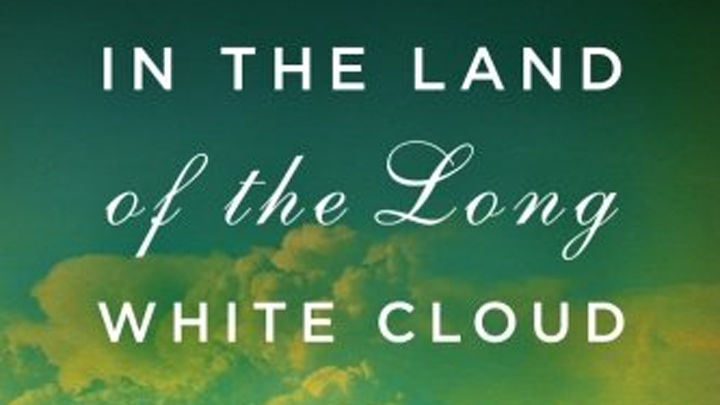Family saga from across the ditch…’Land of the Long White Cloud’

‘Land of the Long White Cloud Trilogy’ by Sarah Lark
In the Land of the Long White Cloud – Available for $19.40 via Booktopia
Strong determined women, brutal men, gentle men, fortunes won and lost, spectacular landscapes, racial tensions and a sure eye for history. This trilogy set in New Zealand has it all.
I have read the first two of the ‘Land of the Long White Cloud’ trilogy and I’m reading the third, which was published in May this year.
Sarah Lark is a German writer currently living in Spain and is a noted animal lover – this is obvious in her books. Her descriptions of the working horses and dogs are very detailed and the respect the key characters have for their animals is a feature of the story.
Her work has been translated into English by DW Lovett, an American which perhaps explains why the New Zealanders are using dollars and cents in the nineteenth century.
The story of the Warden, McKenzie, O’Keefe, Greenwood and Martyn families intertwine across the years 1852 – 1918. Five generations are covered in the sweeping backdrop of New Zealand’s colonial days and early nationhood.
The history is accurate in its background, but the families involved are fictitious. The development of sheep farming, gold mining, the coal mines and railroads are the backdrop to these families wealth.
The trilogy traces the families through a group of young women and girls who came to New Zealand on the same ship through very different circumstances. Their lives continue to connect through friendships and inter-marriage. At times the friendships are maintained through social disapproval. The women all show courage and initiative and in their own way are ambitious. Each, in their own way, is spirited. The whores have hearts of gold. Not all the women are ‘good’ mothers. The main women are well rounded characters.
The men in the novels are quite mixed. There are hard drinking, brutal unprincipled men who are physically violent to the women; there are homosexual men who try to deal with their sexuality in the strictures of their day (these two men are stereotypes being interested in art, music and being delicately featured and fair); there are principled men who build their families fortunes and are loving husbands and fathers. They do seem to be either bad or good.
Maori are described and are part of the story in a sympathetic way. A number of Maori are key characters and some become part of the settling families. Respect for Maori culture and traditional lifestyle is to the fore, but I do not think the writer really understands the dispossession Maori suffered. Brief mention is made of ‘troubles’ on the north island when in fact there were wars, to which, in fact Australian colonies sent troops. The more exotic aspects of Maori culture are emphasised, though it is obvious the author has undertaken a lot of research. The leader of resistance to the settlement in the area of the main property, Kiward Station, is seen to be acting out of personal reasons, rather than reacting to dispossession of land and culture.
New Zealand is a beautiful country and there are descriptions of the landscape and weather. To me they were lacking in the feeling an inhabitant would rightly have. Some of the story takes place in other countries. Strangely, there is no mention of earthquakes. I have checked and there were powerful earthquakes in the time the books of the trilogy cover.
Each of the books is long, but each is an easy read.
If you’re wanting a thoughtful interpretation of New Zealand’s early years you’ll be disappointed.
If you want a sweeping family saga of spirited women, hardship, complex relationships, family drama and love and passion through five generations then I can recommend these books.
Have you read any of the books in this series? Would you like to after reading this review? What type of books do you enjoy? Tell us below!











 Proudly Australian owned and operated
Proudly Australian owned and operated